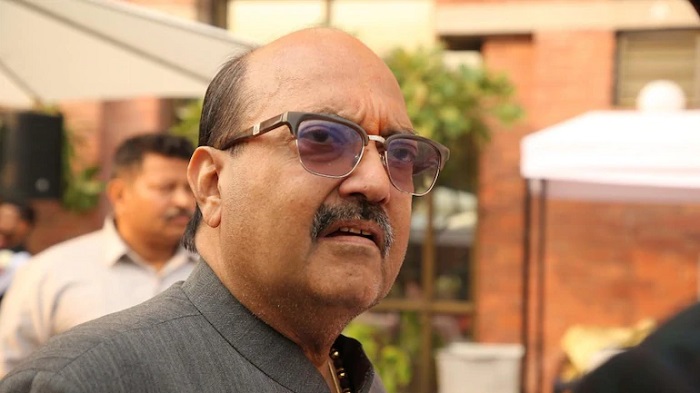Noida, Dec 27: A Hindu religious event scheduled to be held on government land in Greater Noida was cancelled after authorities found it did not have requisite permission, officials said, days after the Noida Police asked private companies in sector 58 to stop their Muslim employees from offering namaaz at a park here.
A nine-day Bhagwat Katha, the Hindu religious programme, was scheduled to begin on Wednesday in Greater Noida's residential Sector 37, officials said.
"The programme was being held on a 1,000-sq metre land area which belongs to the Greater Noida Authority. However, no permission was sought by the organisers for the programme so we cancelled it," a Greater Noida Authority official present on spot told news agency.
Greater Noida authority officials said tents and loudspeakers were being installed at the site from Tuesday night. Around 10 AM, when the Greater Noida authority officials reached there, everything was set up and 25-30 people had gathered, another official, who did not wish to be identified, told news agency.
"The sector's resident welfare association was also not involved in organising the programme, whose main organisers came from outside," the official said.
Earlier, a police station in Noida's Sector 58 had asked 23 private companies to stop their Muslim employees from gathering in a local park without permission for offering Friday namaz. In the wake of the order, which was issued earlier this month, the administration had Tuesday said "unauthorised" religious gatherings will not be allowed at public places.
The Friday prayer order drew flak from politicians with BSP president Mayawati saying such a policy, if at all, should be implemented in all districts and people from all religions. AIMIM Chief Asaduddin Owaisi also criticised it.
"If the Yogi Adityanath government in the state has any such policy of banning religious activities at public places, why is it not being implemented on people belonging to all religions and in all the districts of the state without any discrimination," the Bahujan Samaj Party (BSP) chief said in a release in Lucknow.
Slamming the order, Owaisi tweeted, "UP cops literally showered petals for Kanwariyas, but namaz once a week can mean disrupting peace & harmony."







Comments
this bhagwat katha is just planned to stop friday namaz............ authorities want to send msg to people that even hindus program cancelled so they can stop muslims to pray the friday namaz.this is planned by RSS authority..
Add new comment